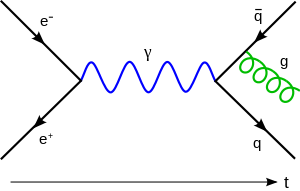 Paul Krugman at New York Times consumes Robert Gordon’s analysis of economic growth and the role of technology and comes up more hopeful than Gordon. The kernel in Krugman’s hope is that Big Data analytics can provide a shortcut to intelligent machines by bypassing the requirement for specification and programming that was once assumed to be a requirement for artificial intelligence. Instead, we don’t specify but use “data-intensive ways” to achieve a better result. And we might get to IR#4, following Gordon’s taxonomy where IR stands for “industrial revolution.” IR#1 was steam and locomotives IR#2 was everything up to computers. IR#3 is computers and cell phones and whatnot.
Paul Krugman at New York Times consumes Robert Gordon’s analysis of economic growth and the role of technology and comes up more hopeful than Gordon. The kernel in Krugman’s hope is that Big Data analytics can provide a shortcut to intelligent machines by bypassing the requirement for specification and programming that was once assumed to be a requirement for artificial intelligence. Instead, we don’t specify but use “data-intensive ways” to achieve a better result. And we might get to IR#4, following Gordon’s taxonomy where IR stands for “industrial revolution.” IR#1 was steam and locomotives IR#2 was everything up to computers. IR#3 is computers and cell phones and whatnot.
Krugman implies that IR#4 might spur the typical economic consequences of grand technological change, including the massive displacement of workers, but like in previous revolutions it is also assumed that economic growth built from new industries will ultimately eclipse the negatives. This is not new, of course. Robert Anton Wilson argued decades ago for the R.I.C.H. economy (Rising Income through Cybernetic Homeostasis). Wilson may have been on acid, but Krugman wasn’t yet tuned in, man. (A brief aside: the Krugman/Wilson notions probably break down over extraction and agribusiness/land rights issues. If labor is completely replaced by intelligent machines, the land and the ingredients it contains nevertheless remain a bottleneck for economic growth. Look at the global demand for copper and rare earth materials, for instance.)
But why the particular focus on Big Data technologies? Krugman’s hope teeters on the assumption that data-intensive algorithms possess a fundamentally different scale and capacity than human-engineered approaches. Having risen through the computational linguistics and AI community working on data-driven methods for approaching intelligence, I can certainly sympathize with the motivation, but there are really only modest results to report at this time.… Read the rest

